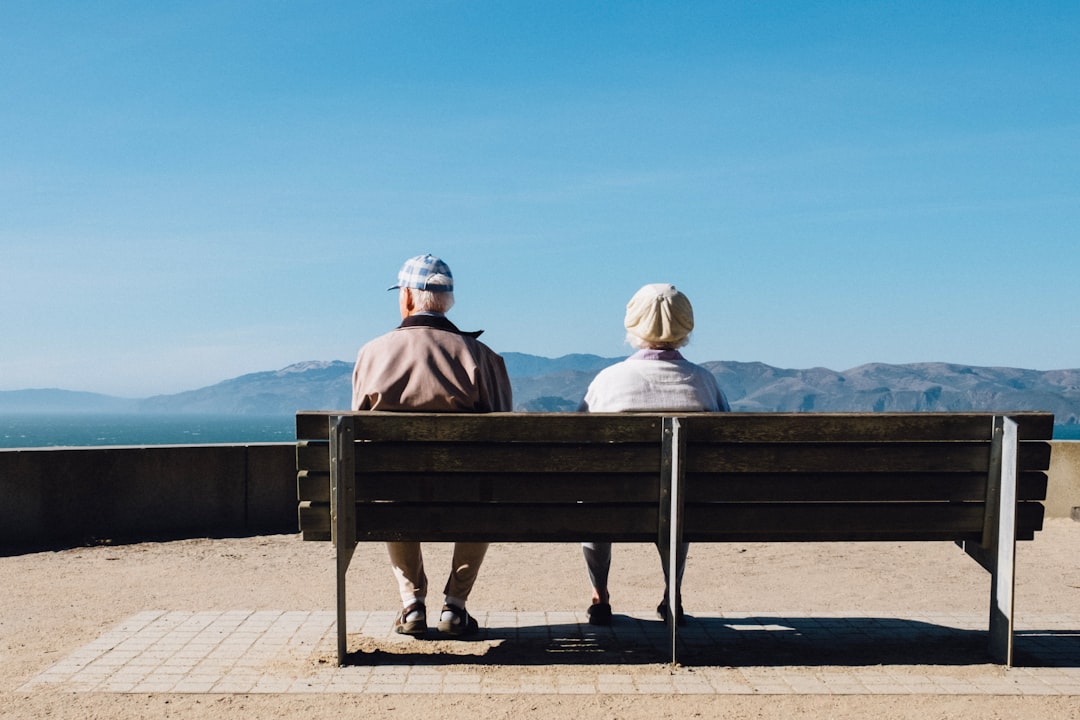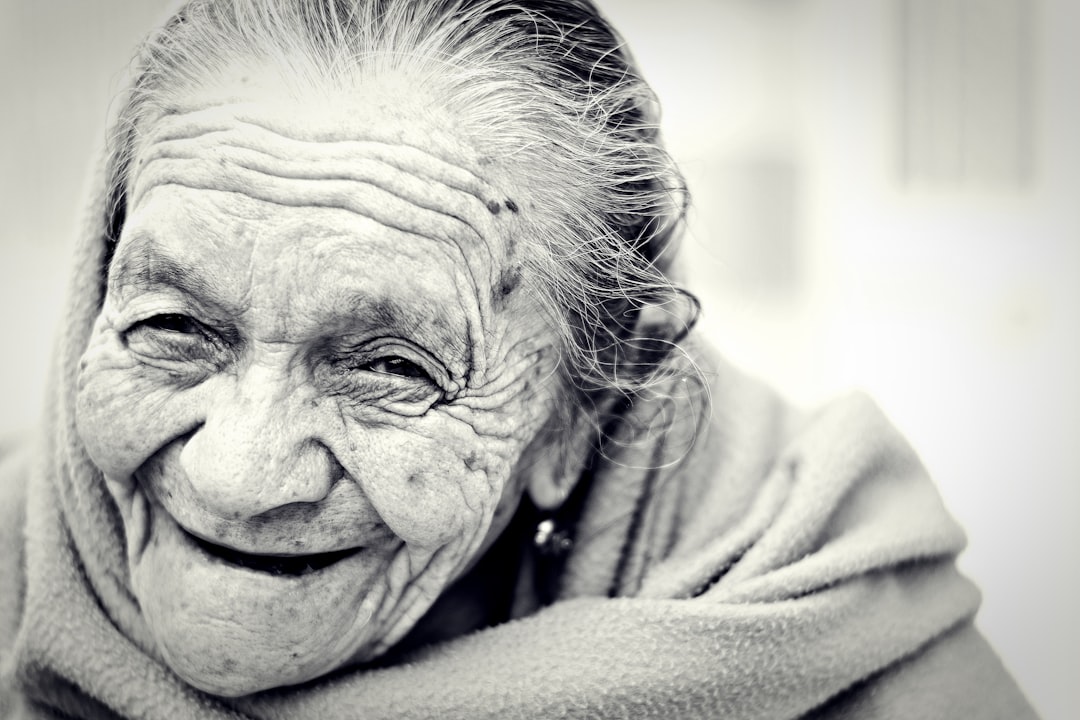How This Digital Health Startup Is Combating Loneliness In Older Adults
Making old age look attractive, fresh and cool.
Welcome to another edition (the first in August) of The Digital Health Report, our publication dedicated to digital health reports, articles, stories, research news and more.
The Digital Health Report is written and edited by the editorial team at Carecode Digital Health Hub.
Read the last edition
This edition discusses a startup using digital technology to battle a hidden but dangerous epidemic among older people—loneliness.
No one talks much about loneliness and how it's one of the deadliest (but silent) healthcare challenges older people in our communities struggle with worldwide.
It is crucial to prioritise developing effective strategies and technologies to address the issue of loneliness among elderly individuals.
In this edition, we look closely at what Peppermint is doing to combat loneliness in older adults. And at the end, we conclude with lessons Africa's healthcare innovators can learn.
If you are new around here, kindly subscribe.
We share stories, reports, articles, essays and research about digital health technologies.
And if you are part of the family, kindly share this edition with your network (that’s how you can help us grow the publication).
"A large body of research shows that social isolation and loneliness have a serious impact on older people's physical and mental health, quality of life, and their longevity."
World Health Organisation.
Why Is Loneliness So Bad?

A meta-analytic review discovered that the risk of premature death due to loneliness increased by 26% and 29% due to social isolation.
Why is loneliness so bad?
The most critical factor implicated here is that when people become socially isolated, they are starved of social and human connections, which are vital for optimal human health and function.
The risk of loneliness and social isolation increases as people grow older.
The journey to loneliness can be said to begin when children become older and start to fend for themselves (this is for people who even raise kids).
It will not be abrupt or sudden. But slowly.
When the children are old enough to live alone, they leave the nest to find their paths in life.
Sometimes, parents may still be actively working when children leave the nest, so they might not really feel the social impact of loneliness yet.
They may begin to feel a bit of it when they finally stop working or retire. And it even becomes more pronounced if one of them passes away.
Losing a spouse can lead to the other partner experiencing loneliness and isolation if no action is taken promptly.
"Social isolation and loneliness are widespread, with some countries reporting that up to one in three older people feel lonely. A large body of research shows that social isolation and loneliness have a serious impact on older people's physical and mental health, quality of life, and their longevity. The effect of social isolation and loneliness on mortality is comparable to that of other well-established risk factors such as smoking, obesity, and physical inactivity." — World Health Organisation.
What Is Loneliness?

According to the Dictionary of the American Psychological Association:
"Affective and cognitive discomfort or uneasiness from being or perceiving oneself to be alone or otherwise solitary. Psychological theory and research offer multiple perspectives: Social psychology emphasises the emotional distress that results when inherent needs for intimacy and companionship are not met; cognitive psychology emphasises the unpleasant and unsettling experience that results from a perceived discrepancy (i.e., deficiency in quantity or quality) between an individual's desired and actual social relationships. Psychologists from the existential or humanistic perspectives may see loneliness as an inevitable, painful aspect of the human condition that nevertheless may contribute to increased self-awareness and renewal."
That's long...
But the central point in that extensive definition is this: "Affective and cognitive discomfort or uneasiness from being or perceiving oneself to be alone or otherwise solitary."
Though loneliness can be a natural emotional response (and at one point in our lives, we've all experienced a degree of loneliness), and people respond differently, it's still important to note that extensive loneliness can lead to chronic isolation that can have devastating effects on the health of older people if not handled properly.
According to research, loneliness can have the following negative effects on the health of people suffering from social isolation:
Depression: There's a very strong connection between loneliness and depression. Research studies have been able to link loneliness and depression, citing that both of them perpetuate each other. Someone suffering from chronic isolation will definitely express symptoms of depression and emotional stress.
Depressed Immunity: Loneliness is a form of emotional stress that can depress the immune system and make individuals susceptible to other forms of health problems. Some studies have linked emotional stress with depressed immunity.
Physical Pain: It's worth knowing that the brain areas that deal with social exclusion are the same areas that process physical pain (dorsal anterior cingulate cortex and ventral prefrontal cortex). So, people who experience social isolation for an extended time will likely experience physical pain.
Researchers have long known that social isolation in older adults increases their risk of developing dementia. And newer research has also revealed that there's a strong link between loneliness and Alzheimer's disease.
Loneliness is also connected to a wide variety of chronic conditions. It can increase the risk of developing cancers, stroke or heart disease.
It may not be a direct cause, but it can create the ideal environment for these conditions to progress quickly, i.e., it's a strong risk factor.
Combating A Hidden Epidemic

With the advent of digital health technologies, it's becoming much easier to deal with more healthcare conditions, especially those that affect our mental health.
There are a lot of digital health startups leveraging digital technologies to deal with a wide variety of healthcare conditions.
Many are utilising intelligent and advanced technologies like artificial intelligence and machine learning to provide innovative solutions to most healthcare conditions plaguing our society through digital health applications, digital therapeutics and other advanced digital health solutions.
Peppermint, a digital health startup by Redesign Health, is leveraging the power of community and social interaction to deal with this social epidemic among older adults.
Their approach is quite innovative. They have built their solutions using the idea of an online clubhouse where older adults can connect, interact, share and grow.
Bringing A Refreshing Feeling

Peppermint is bringing a refreshing taste to the lives of older adults battling with loneliness.
With their Clubhouse, Workshop & Collaboration approach to creating an enabling and comfortable environment for older adults to foster relationships and build healthy connections, they will surely touch many lives and reduce the incidence of loneliness or social isolation among older adults.
"An online clubhouse community where older adults connect, learn and pursue their passions, promoting happier, healthier and longer lives."
Peppermint's style is a strategy worth emulating.
After studying their solution, I have discovered that the minds behind the design have done an excellent job.
They understand what older people need. And they are building their solution to meet this need entirely.
This is what innovation is, really—meeting the needs of people.
When we age, we tend to isolate ourselves from people. It's not entirely our decision. It's just the way society is engineered—unfortunately.
When we have limited choices, we must make the most of what we have. We can try to stay engaged by doing everything possible within our ability, or if we cannot, we may find ourselves battling feelings of solitude or, even worse, social exclusion/isolation.
Peppermint sees this gap and tries to close it by using digital technology.
And I think they are doing a great job!
With a monthly membership of just about $10, and a free 30-day free trial, all you need to do is sign up, answer the questions that will enable them to design a custom experience for you based on your data, and you are good to go.
There's even an option for Peppermint experts, where you can share your experience with a community and get paid for doing so.
It's amazing.
I love complex digital health solutions. But when I see a solution that takes a simple element like social interaction and community and engineers it to create a design that meets the needs of people, I am always blown away.
Healthcare innovators need to start thinking deeper and deeper.
There are a lot of problems around us today that may not need very complex solutions. All that's required is for innovators to look around and pick ideas to help them design solutions.
Digital Health Is All About The User
Digital solutions like Peppermint that are big on social engineering and community are the kind of solutions we need in digital healthcare.
In designing digital health solutions, our primary concern is the people (patients and clients) using them.
We put them in the middle and model our solutions around them. It's totally about them. And nothing else.
This is what makes digital health technologies different from other types of technologies.
If our focus begins to shift away from the users, we fall into a lot of trouble. And digital health providers or startups that have fallen into the trap of shifting their focus away from the user (patient/client) have paid dearly for it.
Lessons For Africa

Loneliness and social isolation depend on many factors and vary differently from culture to culture.
Here in Africa, the issue of loneliness among older adults isn't yet a thing of public health concern, thanks to our culture.
Unlike in the Western world, where older people are likely to spend the latter parts of their lives in nursing homes, we keep our older people very close to us here in Africa.
They have their grandchildren and even extended relatives around them most of the time. So, the effects of loneliness and social isolation are cushioned by the presence of loved ones.
However, I have observed that it's all gradually changing as we begin to absorb the digital culture.
More Africans have started to adopt the culture of sending their older parents to nursing homes. It's perceived to take the burden off their shoulders and enables them to concentrate on work and their budding families.
Though some still choose to keep their older parents close to them and employ Geriatrics services or just get a helper or carer to be with them at home.
This social shift is gradually making the issue of loneliness and social isolation among older people more apparent, even among Africans. And so, something must be done about it before it becomes a serious public health challenge for us.
Healthcare innovators in Africa must start thinking ahead and rise to the challenge.
We need to start building now to be able to withstand the challenges of the future. We don't necessarily have to wait for the problem to become prominent before building solutions actively.
Innovation looks at the future and starts to build today.
There's already a social gap in Africa regarding preventing loneliness or social isolation in older people.
It may not be too obvious yet, but I can assure you that it's there, and the people affected will benefit from an innovative solution that alleviates that pain.
A Peppermint For Africa?
I wouldn't know if the Peppermint solution is also designed for Africa. But I am looking forward to seeing healthcare innovators in Africa take a closer look at this social issue and begin to work on something, taking inspiration from what the team at Peppermint is doing.
Did you enjoy this edition?
If you did, kindly help us share with your network, and if you haven't yet subscribed, please do so; it's free!
It takes us hours, sometimes days, and if we feel too lazy or wearied by our day's work, it takes weeks to put an edition together.
And it will only take you 10 or 20 seconds (or less) to share.
Want to know more about The Digital Health Report? Go here.
Suggested Reading:
More resources:
References
Social isolation and loneliness. (2021, July 29). https://www.who.int/teams/social-determinants-of-health/demographic-change-and-healthy-ageing/social-isolation-and-loneliness
APA Dictionary of Psychology. (n.d.). https://dictionary.apa.org/loneliness



